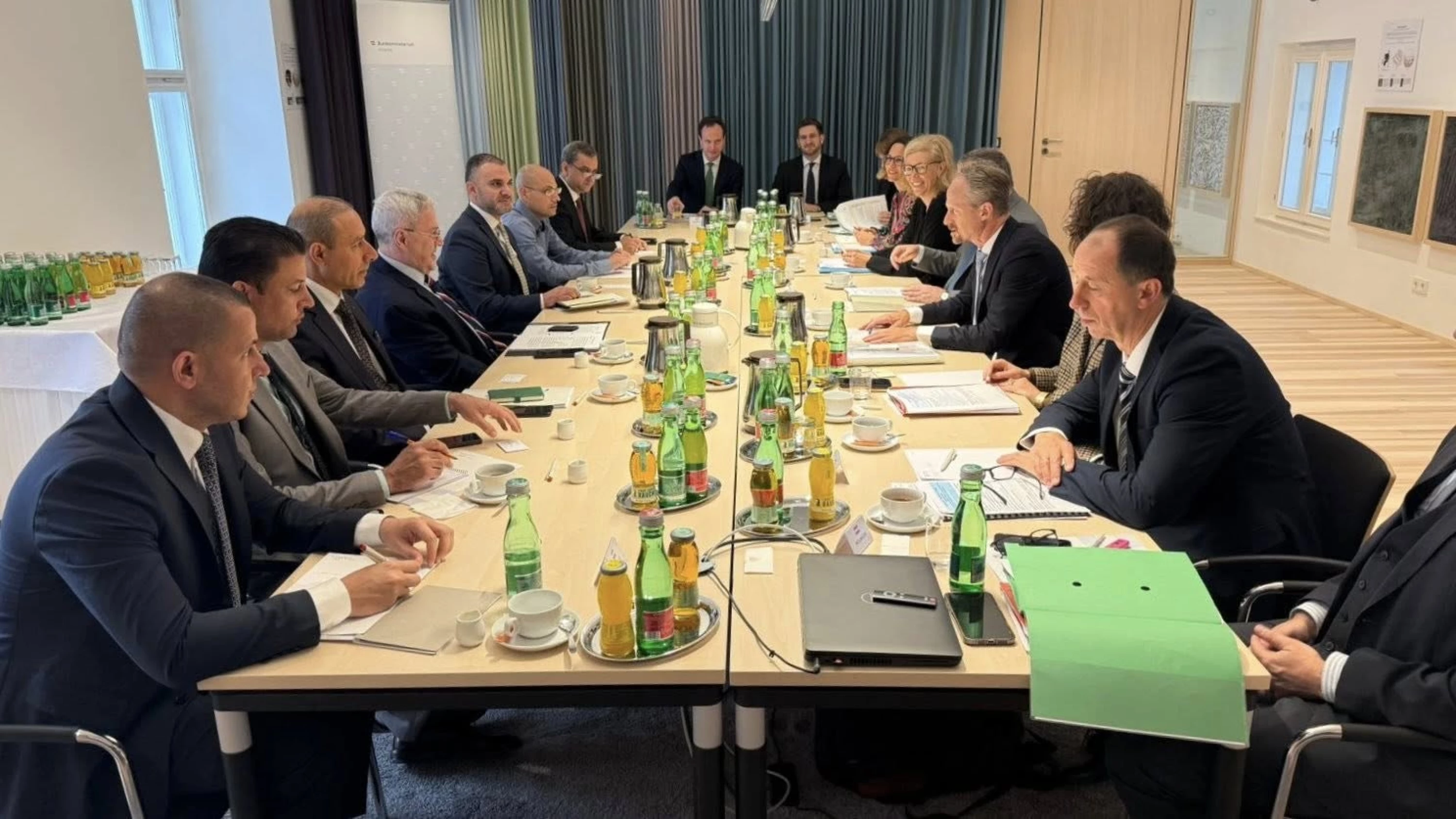ERBIL, Kurdistan Region of Iraq – The Iraqi foreign ministry’s undersecretary met with Austrian migration officials on Thursday, stressing the need for bilateral cooperation to combat illegal migration and human trafficking networks.
In a consultatory meeting in Vienna, Mohammed Hussein Bahr al-Uloom, the Iraqi foreign ministry's undersecretary for bilateral relations, and Peter Webinger, deputy director of Austria’s migration directorate, discussed the issue of illegal migration, according to a statement from the Iraqi foreign ministry.
The undersecretary asserted that Baghdad’s strengthened security has prompted the “voluntary” return of Iraqi migrants abroad.
“The state of stability the country is experiencing has contributed to strengthening opportunities for the voluntary return of Iraqi migrants,” he said, noting that Iraq is working to provide the “appropriate conditions” and “necessary support” for those wishing to return.
For his part, Webinger commended Baghdad’s efforts in combating illegal migration, stating that “the improvement in security and economic conditions in Iraq has become clear to the international community,” the Iraqi ministry’s statement added.
Thousands of Iraqi nationals take on the hazardous routes of illegal migration every year in search of a better life in Europe and the United Kingdom, an issue which has become a growing concern for local and international actors.
According to data published by the Summit (Lutka) Foundation, over 15,000 people from Iraq and the Kurdistan Region have migrated to Europe from January to June 2025, raising the total number of Iraqi migrants to around 780,000 since 2015.
Webigner also expressed Vienna’s desire to cooperate and “exchange expertise” with Baghdad in the field of combating extremism and “reintegration.”
The two sides also highlighted the importance of joint cooperation to “combat human trafficking networks,” and the need to exchange information to limit the phenomenon “in a manner that contributes to protecting citizens' rights and enhancing legal and organized migration pathways.”
Human trafficking in Iraq often takes the form of “foreign workers” imported into the country by trafficking networks and forced to work under harsh conditions for lengthy hours and minimal payment.
The victims often have their passports and personal documents confiscated to prevent them from abandoning their occupations.
In its 2024 Trafficking in Persons Report on Iraq, the US State Department acknowledged that Baghdad had made “significant efforts” to combat trafficking, including investigating and prosecuting more trafficking crimes, but stressed that the government did not “fully meet the minimum standards for the elimination of trafficking.”
The report suggests that an estimated 221,000 individuals in Iraq are affected by what it called “modern slavery.”



 Facebook
Facebook
 LinkedIn
LinkedIn
 Telegram
Telegram
 X
X


